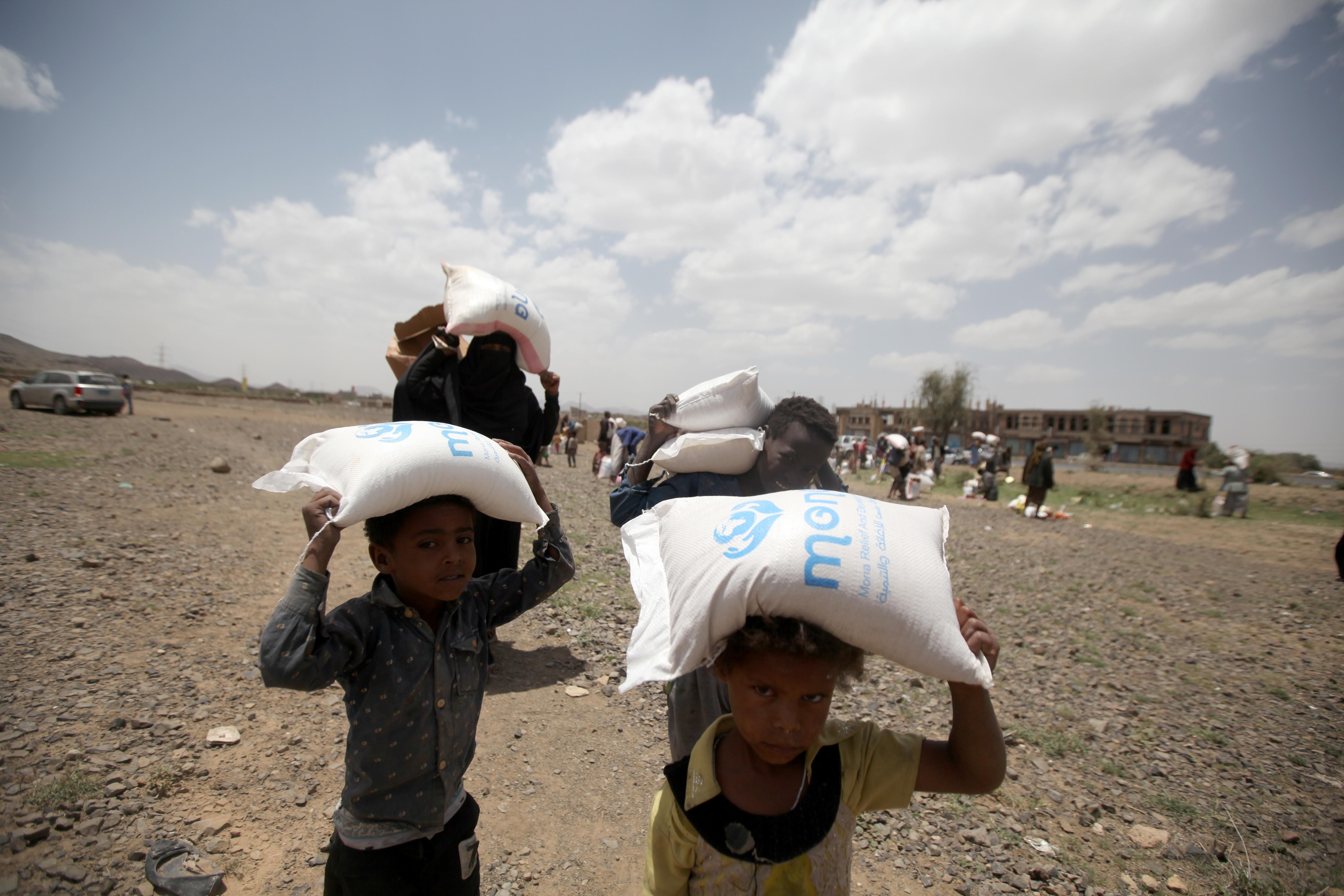Middle East
March 02, 2021
Yemen left behind: A virtual pledging event aimed at raising funds for war-torn Yemen raised $1.7 billion, well shy of the $3.85 billion the UN says is necessary to alleviate suffering from years of famine conditions and war. At the session, jointly hosted by Sweden and Switzerland, the US pledged $191 million towards Yemen's humanitarian effort, while the Germans promised $241 million. The UN says the pandemic has limited the ability of wealthy countries to provide humanitarian help for Yemen, where two-thirds of the population rely on food aid to survive after six years of conflict between Iran-backed Houthi rebels and a Saudi-led coalition. This development comes as the Biden administration has sought to enforce a ceasefire in Yemen by stopping US support for the Saudi military campaign there and removing the Houthis from the US' State Sponsors of Terrorism list to help open Yemen up to more aid. Meanwhile, the Houthis continue their assault of the city of Marib, now home to millions of displaced Yemenis, exacerbating the world's worst humanitarian crisis.
Eye in the sky on North Korea: Newly published satellite images reveal fresh construction at a site that experts say North Korea uses to store nuclear weapons. It's possible that Kim Jong-un is racing to add to his nuclear stockpile to strengthen his bargaining position before the Biden administration settles on a North Korea strategy. Maybe he's preparing for nuclear tests later this year. It's also possible the DPRK built new structures that it knows the US will photograph and analyze in order to pressure Biden to engage without having to conduct a costly, risky nuclear test. The larger question is what Biden's North Korea strategy will be. Return to the max pressure approach of Barack Obama? Find some way to engage Kim Jong-un directly as Donald Trump did? That approach at least brought a pause to the nuclear tests. We're watching to see how Biden tackles a problem that may have no solution.
Ethnic cleansing in Tigray: The US government believes that Ethiopian government forces are carrying out a campaign of ethnic cleansing in Tigray, the northern region where separatists have fought Ethiopian army troops since November. A new Amnesty International report, meanwhile, alleges crimes against humanity committed there by Ethiopian government forces and troops from neighboring Eritrea fighting alongside them. The Ethiopian government calls the reports "misinformation and propaganda." To prove its point, it has recently accredited several international media organizations to report on Tigray, reversing a months-long media blackout. But Addis Ababa has also detained local employees or translators for Agence France Presse, the Financial Times, and the BBC. The crisis in Tigray is already spilling into neighboring Sudan as hundreds of thousands of refugees flee violence and the threat of famine. US president Joe Biden, meanwhile, has pledged to re-engage with Africa, largely neglected by the Trump administration, and we're watching to see how his administration addresses this growing crisis taking place within the borders of one of Washington's regional allies.
From Your Site Articles
More For You
Microsoft unveiled a new set of commitments guiding its community‑first approach to AI infrastructure development. The strategy focuses on energy affordability, water efficiency, job creation, local investment, and AI‑driven skilling. As demand for digital infrastructure accelerates, the company is pushing a new model for responsible datacenter growth — one built on sustainability, economic mobility, and long‑term partnership with the communities that host it. The move signals how AI infrastructure is reshaping local economies and what people expect from the tech shaping their future. Read the full blog here.
Most Popular
British Prime Minister Keir Starmer delivers a speech at Horntye Park Sports Complex in St Leonards, Britain, February 05, 2026.
Peter Nicholls/Pool via REUTERS
In July 2024, Keir Starmer won the United Kingdom’s election in a landslide. It has been downhill ever since, with Starmer’s premiership sullied by economic stagnation, intraparty fighting, and a lack of vision for the country.
- YouTube
Meanwhile in the oval office #PUPPETREGIME
© 2025 GZERO Media. All Rights Reserved | A Eurasia Group media company.
